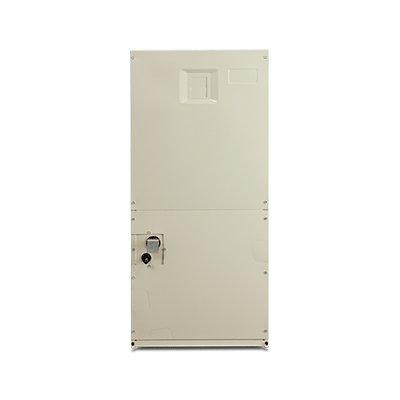Ground source heat pumps offer the optimal solution for the householder, the community, and the environment on the journey to net-zero.
This article debunks various myths about ground source heat pumps and sets out how a community-oriented approach to their installation can help reach the government’s deployment targets for the lowest cost, and lowest impact.
Suitable for all property types
As the name implies, ground source heat pumps harness heat energy from the ground and require the installation of underground pipework. However, this does not prohibit them from being used in flats and office accommodation, ground source heat pumps are suitable for all property types.
It is also a myth that ground source heat pumps do not work in poorly insulated homes. It doesn’t matter if users run a gas boiler or a ground source heat pump, heat is better contained inside an insulated building and its energy demand is reduced. Any energy efficiency improvements that can be made will help keep running costs down, but homeowners are certainly not required to spend tens of thousands of pounds on insulation to make a ground source heat pump effective.
Unbeatable efficiencies, unlimited energy source
Ground source heat pumps are the most energy-efficient heating technology available
Ground source heat pumps are the most energy-efficient heating technology available. For every 1kW of electrical power consumed, ground source heat pumps deliver 3 to 4kW of renewable energy harnessed for free from the ground and replenished by sunlight and rainfall.
A gas boiler uses 1 unit of gas and delivers about 0.85 units of heat, making a heat pump over 3 times as efficient in comparison.
It also means that a smaller proportion of the power needed to run the heat pump is going to be affected by rising energy costs. And a system that delivers much more electrical energy than it consumes will deliver lower running costs for users' households.
vertical boreholes
For properties with high heat loads, such as multi-dwelling properties or commercial premises, the best solution for extracting heat in vertical boreholes, which are virtually invisible and unobtrusive, and don’t require large areas of open land space.
Although they require specialist machinery, they can be drilled quickly and easily, providing renewable heat for up to 100 years.
Providing clean, comfortable, affordable heating
Kensa has successfully delivered some of the biggest ground source heat pump installations in the country
Using shared borehole ground arrays and a small but powerful heat pump in every home, Kensa has successfully delivered some of the biggest ground source heat pump installations in the country into flats and apartments.
This has often been in properties with an EPC of C or lower, improving the quality of life for thousands of people and protecting them from fuel poverty.
This has been completed in partnership with social housing providers and local authorities, replacing inefficient and unreliable direct electric heating, reducing tenant’s bills by around two-thirds whilst keeping them comfortably warm.
Community energy infrastructure
Drilling boreholes comes at a price, so Kensa proposes separating the cost of the heat pump unit from that of the ground array, with external funders, such as energy or water companies, owning and operating a nationwide heat pump infrastructure that mimics the existing gas network.
If this underground infrastructure is already provided, then homeowners could be motivated to replace gas boilers with heat pumps in a phased switchover, subsidized by Government support, paying pay a small annual connection fee.
It also means that plumbers could install ground source heat pumps on a neighborhood scale, without involvement with a ground array, just as they have no involvement in the supply of the gas network. Rather than being a stumbling block, Kensa believes the ground arrays required for ground source heat pumps are the key that unlocks the opportunity for the entire country to benefit from efficient, reliable, and durable heating.
Hydrogen in homes is still a pipe-dream
The low efficiency of hydrogen compared to ground sources means that a far larger investment in low-carbon electricity
Many people are proposing switching from gas to using green hydrogen instead, but in reality, it’s not easy to convert the gas network to hydrogen and there is no proven blueprint for this solution.
It has been suggested that using green hydrogen, produced through the process of electrolysis, using renewable electricity to split water into oxygen and hydrogen to heat buildings is roughly four times less energy efficient than using heat pumps. The low efficiency of hydrogen compared to ground sources means that a far larger investment in low-carbon electricity generation would be required, put simply this means more solar and wind turbines.
Net-Zero Carbon
It’s unlikely that zero-carbon hydrogen supplied via a repurposed mains network will be available for the foreseeable future. What happens in the next decade could be the measure of success or failure in achieving net-zero carbon. The longer we wait for hydrogen to create a solid solution, the closer users are to the tipping point.
Heat pump technology is ready to be deployed now. This will need policy changes, infrastructure, and investment in the electric grid and the low-carbon generating technology attached to it, but nowhere near as much as users might think.



















